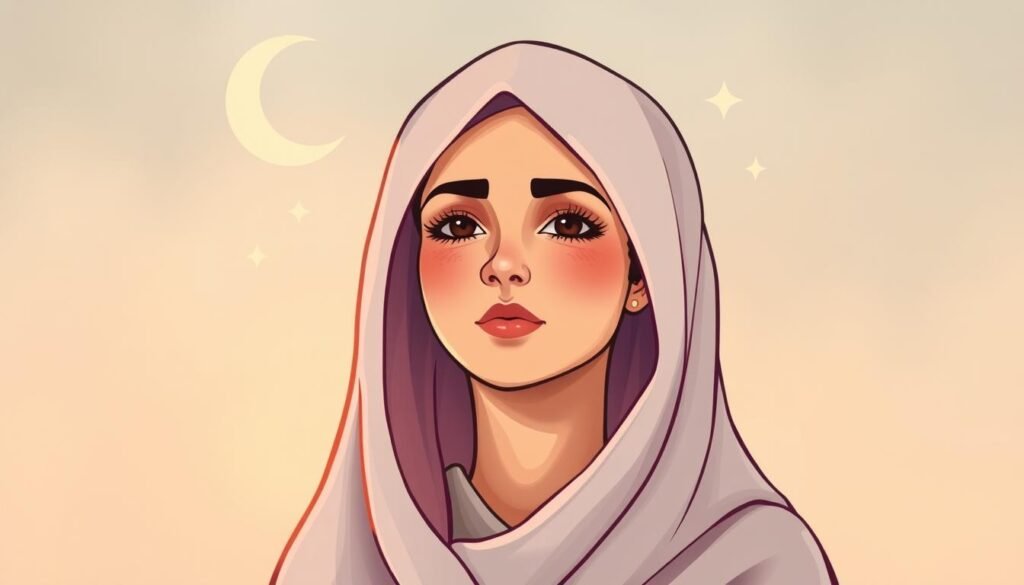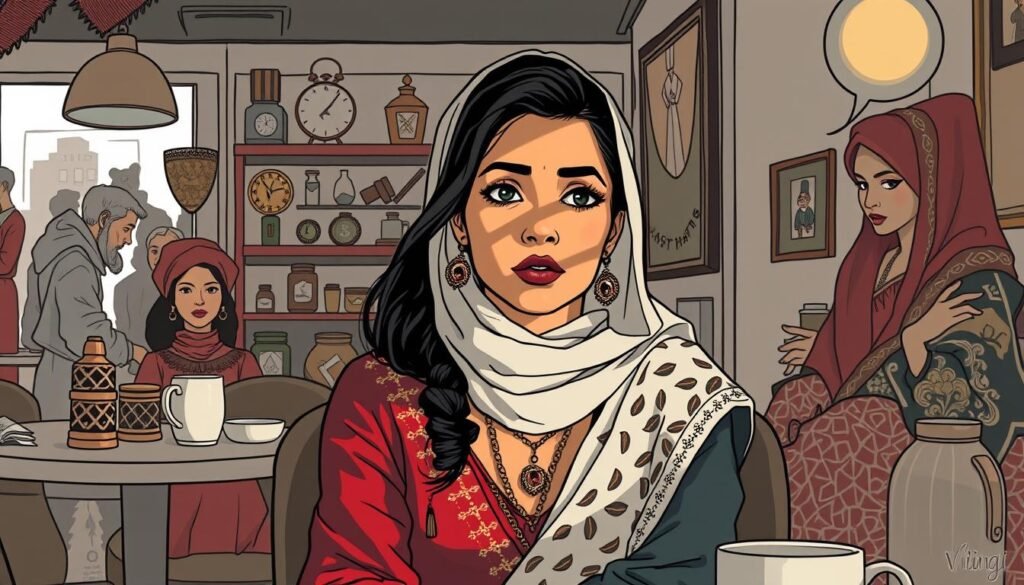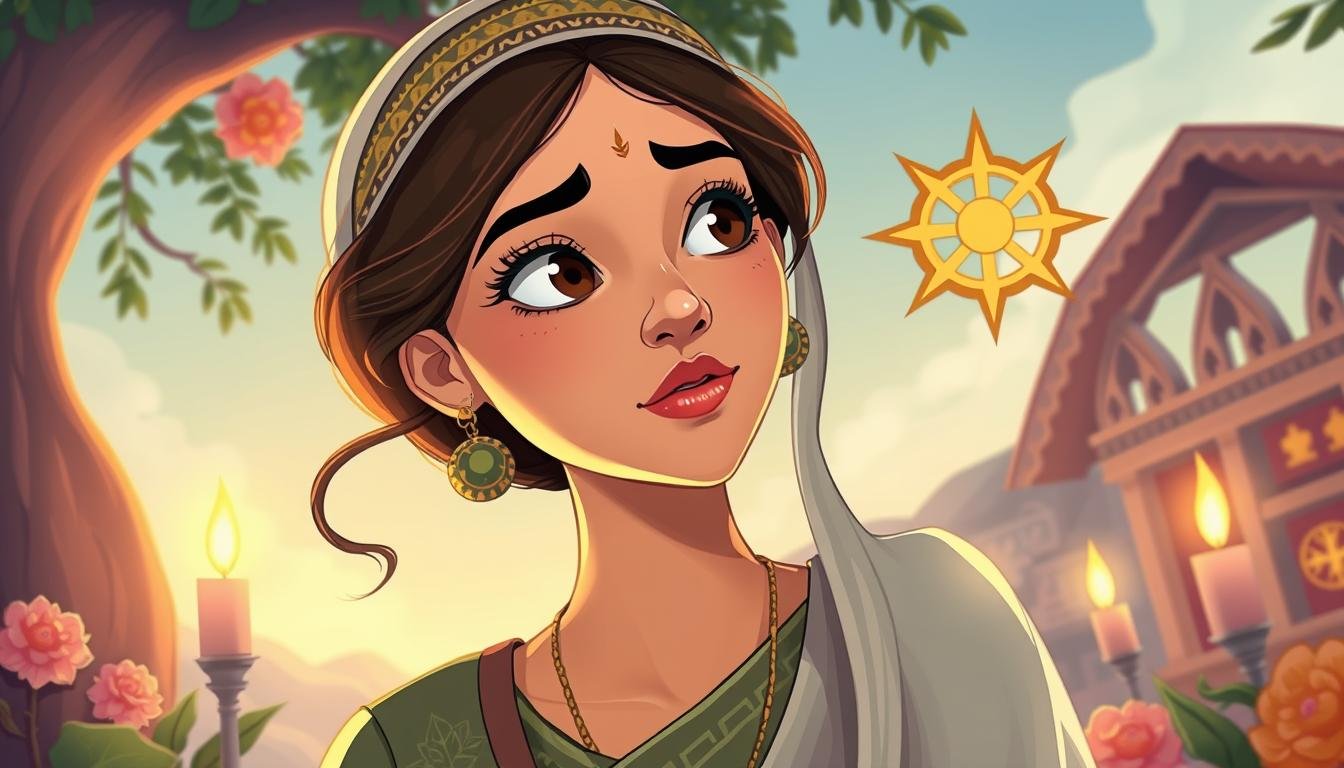In a world where identity can often be misconstrued by public perception, one must ask: Can our past choices truly define our religious identity? This question is particularly relevant when examining the case of Mia Khalifa—a Lebanese-American media personality. Her career ignited a firestorm of controversy, primarily due to a brief but impactful period in the adult film industry.
Often associated with Muslim identity because of her heritage and her stage name, Khalifa was born Sarah Joe Chamoun in Beirut, Lebanon. She was born into a Lebanese Christian family. This presents a complex narrative surrounding her religious affiliation.
The intersection of Mia Khalifa’s career choices and her religious background has led to misconceptions about her beliefs and identity. As we delve deeper into the nuances of Mia Khalifa’s religion and her cultural roots, it becomes imperative to distinguish the realities of her upbringing from the stereotypes that often cloud public understanding.
Mia Khalifa’s Background and Early Life
Mia Khalifa’s childhood was shaped by many cultural influences. She was born on February 10, 1993, in Beirut, Lebanon. Her early years were filled with the excitement and challenges of a country in conflict.
Her family moved to the United States in 2000. This move was due to the South Lebanon conflict. It brought her to Maryland, where she found a new cultural world.
Born in Beirut, Lebanon
In Beirut, Mia Khalifa was surrounded by history and traditions. She went to a French private school until she was ten. This gave her a strong educational base.
Her upbringing was a mix of liberal and conservative values. This mix shaped her views as she grew up.
Religious upbringing in a conservative home
Khalifa’s family was Christian, which was important in her upbringing. Raised in a conservative home, she learned discipline and moral values.
Despite her home’s conservatism, Beirut taught her about faith and identity. Moving to the United States was a big change. It influenced her choices later in life.
The Meaning Behind the Name “Mia Khalifa”
The name Mia Khalifa often sparks curiosity. It raises questions about cultural identity and branding in entertainment. The choice of a stage name is more than personal preference. It’s a way to navigate fame and recognition.
Mia Khalifa’s name comes from her dog, “Mia,” and rapper Wiz Khalifa’s surname. This mix shows how entertainers blend personal and commercial identities. They create relatable personas that might differ from their true backgrounds.
Choosing a stage name
Stage names are powerful tools for artists. They help establish a brand and appeal to certain audiences. Mia Khalifa’s name is a unique choice in the media industry.
Her name might suggest a Muslim identity, but she’s actually a Lebanese Catholic. This contrast highlights the complexity of public personas, especially for women from diverse backgrounds.
The connection to cultural identity
Mia Khalifa’s name raises questions about cultural appropriation and identity commodification. Critics argue her choice exploits the fetishization of Muslim women in media. This creates a paradox between her Lebanese Christian roots and her industry image.
Name choices in adult entertainment can amplify stereotypes. They influence how people see cultural identities. The connection to cultural identity is complex, as audiences interpret her persona in different ways.
Is Mia Khalifa A Muslim?
Many people wonder if Mia Khalifa is a Muslim. This question comes from her name and past work. But, she has always said she is a Lebanese Christian.
Clarifying religious identity
Mia Khalifa’s faith is tied to her Lebanese roots, not her past job. She believes in Christianity, a faith she had since she was a kid. She talks about how her faith is often misunderstood by the media.
Exploring her Lebanese Christian roots
Mia Khalifa’s story is deeply connected to her Lebanese Christian background. Her family’s values shaped her views on culture and religion. Her mix of Lebanese heritage and adult film career offers a fresh perspective on her public image.

The Impact of Her Career Choices
Mia Khalifa’s career choices have sparked a lot of debate. Her time in adult films, though short, caused a big stir. This was especially true for a scene where she wore a hijab.
This scene upset many in the Muslim community. They felt it showed harmful stereotypes of Muslim women. It shows how hard it is to balance personal choices and cultural views.
Controversy surrounding her adult film career
Khalifa quickly became a figure of controversy in the adult film world. She started with a thousand dollars per film but soon made millions. Her brief time in the industry drew a lot of attention.
Some of this attention was violent, with threats from extremist groups. Her story shows how big the impact can be, even for a short career.
Portrayal of Muslim women in media
Media often shows Muslim women in a bad light. This has been true since the 18th century. Khalifa’s role, though not true to all Muslim women, brings up important questions.
Many say Western media shows more about itself than real Muslim women. Khalifa’s case highlights the power of media in shaping what we think.
Public backlash and support
Khalifa has faced a lot of criticism but also gained fans. They see her as a symbol of strength and choice. The mixed opinions show the ongoing fight for women’s rights, especially for women of color in adult films.
Khalifa refuses to say sorry for her actions. She says she didn’t mean to offend Muslim women. This makes the debate about her impact even more complex.
Mia Khalifa’s Rise to Fame
Mia Khalifa’s journey to fame is interesting. It shows how shocking content can quickly grab people’s attention. She started in adult films, causing a big talk about her and her work.
After leaving adult films, Mia became a big name on social media. She won over millions of fans, showing her talent and strength.
How her controversial content drew attention
Mia’s fame first came from her adult films. This got a lot of media attention. People talked a lot about her, her choices, and how women are shown in media.
Her honest talks about her adult film days got both praise and criticism. This sparked big talks about adult entertainment’s effects.
Her role as a social media personality
Mia has over 25 million followers on Instagram. She’s also popular on TikTok and Twitter. She talks about sports and her life, reaching many people.
She makes $500,000 to $1 million a year from ads. This shows she’s good at using her fame. Her career change shows she can change her image while still being connected to her past.
Criticism and Public Perception
Mia Khalifa is often talked about in debates on stereotypes and cultural appropriation. People criticize her for using a Muslim identity for fame. They say she makes cultural symbols into money and hurts Muslim stereotypes. The Mia Khalifa criticism is because she thinks her fame can harm how people see Muslim culture.
Debates over stereotypes and cultural appropriation
Khalifa’s identity choices spark big talks on cultural appropriation. People wonder if she’s being real or just using her background for fame. Some think she makes bad stereotypes about Muslim women worse. This topic gets a lot of strong opinions on social media and in newspapers.
Responses from the Muslim community
The Muslim community response to Mia Khalifa is mixed. Some support her right to share her story, while others are upset by her past. The Muslim community has many views, from keeping cultural values to understanding personal stories. For more on her thoughts and their effects, check out her comments on her impact during tense times here.

Life After the Adult Film Industry
Mia Khalifa started a new chapter after leaving the adult film world. She explored many new paths to change her public image. She moved away from the controversy of her past to find projects that matched her dreams and values.
Transitioning to new career paths
Mia wanted to leave her past behind and found new ways to work. She became a social media influencer and sports commentator. Her big online following helped her in these roles.
She focused on projects that let her connect more with her fans. This was a big change from her adult entertainment days.
Current projects and ventures
Mia Khalifa is now into fashion, creating body jewelry that shows her style. This is a big step in her career after adult films. She wants to build a brand that fans and critics will love.
Through these projects, Mia is telling a new story. She’s connecting with her community in a meaningful way.
The Influence of Religious Identity on Her Platform
Mia Khalifa uses her background to talk about women’s rights and Muslim women’s experiences. Her voice adds a lot to the conversation on women’s rights. It shows how identity, empowerment, and media representation are complex.
Using her experience to advocate for women’s rights
Khalifa shares her life to connect with others facing similar issues. Her career has faced controversy, but she keeps pushing for women’s rights. Her stories spark important talks about freedom and how Muslim women are seen.
Commentary on contemporary Muslim issues
Khalifa’s comments have sparked a lot of talk, especially on Muslim issues. She challenges stereotypes, making her a key figure in talks about inclusion. Groups like MuslimGirl have noticed her impact, leading to both support and criticism.
Mia Khalifa and Cultural Appropriation Concerns
Mia Khalifa’s career brings up big talks about cultural appropriation and identity. She became famous for her work, but it sparked debates. People wonder if she’s helping or hurting by showing Muslim women in a certain way.
They say her use of cultural symbols makes us question if she’s being real. It also makes us think about how culture is used for money. This is a big deal in the world of media.
The implications of her work on identity politics
Khalifa’s name is Lebanese, but it’s seen as conflicting with her background. This leads to talks about identity politics. By using a name that connects to Islam, she gets caught up in cultural appropriation.
This makes people talk about respecting cultural stories. It’s a big issue for artists who show images from other cultures. Artists like M.I.A. face similar criticism for using Third World symbols to challenge Western views.
How her actions reflect broader cultural issues
Social media is where these talks really happen. It lets people from the margins share their views. Khalifa moved from adult films to helping others, showing she cares about these big issues.
Her actions make us think about how famous people shape our views. They influence how we see identity, culture, and power in the arts. For more on names and culture, check out this interesting article.
FAQ
Is Mia Khalifa a Muslim?
How did Mia Khalifa’s childhood influence her identity?
What is the significance of the name "Mia Khalifa"?
What role did controversy play in Mia Khalifa’s adult film career?
How has Mia Khalifa transitioned to social media after her adult film career?
What criticisms has Mia Khalifa faced regarding cultural appropriation?
What does Mia Khalifa currently do for work?
How does Mia Khalifa advocate for women’s rights?
What are the broader implications of Mia Khalifa’s career on identity politics?

Embracing Faith, One Insight at a Time!
The teachings of the Quran have always guided my path. With a deep passion for Islamic knowledge, I strive to blend the wisdom of tradition with the relevance of today, making the timeless messages of Islam accessible and meaningful for everyone.
Muslim Culture Hub is my platform to share historical insights and thought-provoking articles, exploring both well-known and lesser-discussed aspects of Islamic culture and beliefs. My mission is to create an inclusive online space where everyone can learn, strengthen their faith, and connect with the profound message of Islam.
Join the journey!
May peace be upon you.








